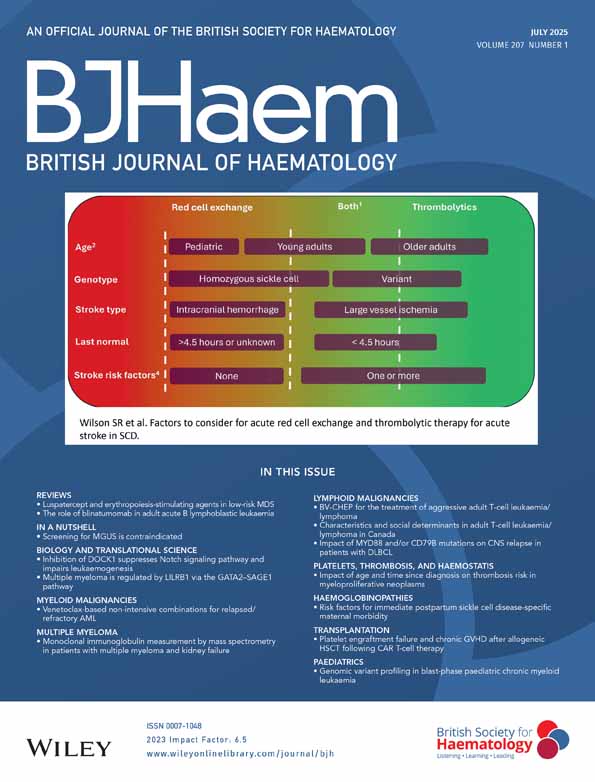Cyclosporin A for the treatment of patients with chronic idiopathic thrombocytopenic purpura refractory to corticosteroids or splenectomy
Abstract
Patients with chronic immune thrombocytopenic purpura (ITP) who are unresponsive to corticosteroids require splenectomy, but if this fails, treatment is difficult. We tried to induce durable remissions in ITP patients refractory to corticosteroids before or after splenectomy by applying strong immunosuppression with the combination of cyclosporin A (CyA 5 mg/kg/d) and prednisone (0·4 mg/kg/d). Patients were assigned to one of two groups. Group 1, 10 patients refractory to prednisone; and group 2, 10 patients refractory to at least prednisone and splenectomy. Overall response rate was 55% (50% in group 1 and 60% in group 2 patients). Nine of the 10 patients in group 1 finally had a splenectomy because of relapse, insufficient response or toxicity of CyA. Thirty percent of the patients discontinued CyA because of side-effects; hypertension, severe headache and muscle pain being the most frequent encountered. It is concluded that CyA treatment does not avoid, but only postpones, splenectomy in chronic ITP patients who are refractory to corticosteroids. However, CyA can be useful in a subgroup of patients with corticosteroid- and splenectomy-refractory ITP, but treatment toxicity is high.




